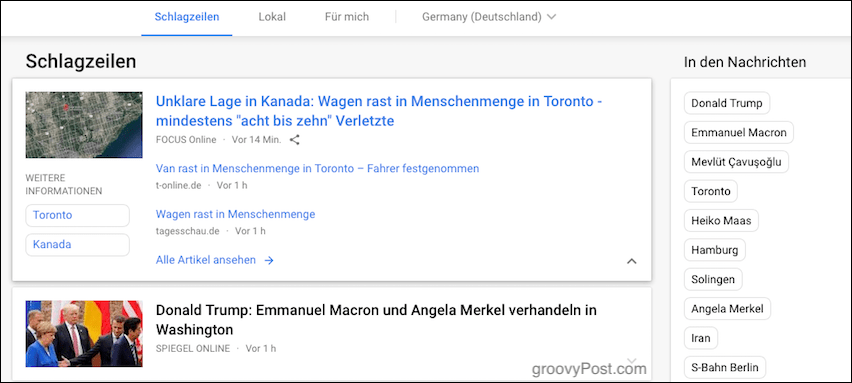The Best Online Resources For Learning a Foreign Language Fast


If you want to learn a foreign language today, you are literally spoiled for choice with all of the online resources. Here are some tools you may want to consider using if you are ready to become bilingual.
Back in 2000, I was dating a Russian woman, and to win over her parents, I started learning Russian. But back then, the Internet was in its infancy so foreign language learning involved the use of audio cassettes and a book. It was so hard that the only sentence I managed to learn in 2 months was the Russian for “who is that? That is a taxi.” Not exactly what you’d want to say to your girlfriend’s mother.
Now that I am living in Germany (and about to take my citizenship exams), German is the language I need to learn fast. But compared to 18 years ago, I now have the Internet to make my foreign language learning faster and easier.
The Best Online Resources For Learning a Foreign Language Fast
I only focus on free or paid resources with a reasonable free option attached. There are places like Rosetta Stone and Babbel, which I feel charge far too much, given their competition.
Duolingo


Duolingo has rapidly become THE place to learn a language for free. Although there is a paid plan which removes the adverts, you can go through the courses for absolutely zero amount of cash.
31 of the courses are in English, and they teach English speakers how to speak Spanish, French, German, Italian, Brazilian Portuguese, Russian, Japanese, Dutch, Swedish, Irish, Turkish, Norwegian, Danish, Korean, Polish, Hebrew, Greek, Mandarin Chinese, Vietnamese, Esperanto, Welsh, Ukrainian, Hungarian, Romanian, Swahili, Czech, Indonesian, Hindi, and Arabic. There are also two fictional languages offered for nerds, High Valyrian (from the “Game of Thrones” books) and Klingon (from Star Trek).
There are also courses for speakers of other languages, so English for German speakers, for example. More language courses are in development all the time by volunteers.
Duolingo works on a flashcard premise. It gives you words and sentences to repeat, as well as words and sentences to type out and translate. The ones you get wrong are repeated till you get them right. Using Duolingo, I managed to surge ahead with my learning.
Duolingo has also entered pop culture with strange sayings generated by its AI machine. Just Google “weird Duolingo” for the whole lot. Google Image Search has countless examples of the following :


Memrise


Although Memrise offers a Pro plan with chatbots and videos, like Duolingo, it has an excellent free tier. It offers all the languages that Duolingo does, plus a LOT more. They also build their learning platform on a flashcard principle.
As well as languages, Memrise also does other topics such as Arts & Literature, Math & Science, The Natural World, History & Geography, Professional & Careers, Entertainment, and Trivia.
My only two complaints about Memrise are that the words given to you are random words. You cannot choose a specific topic like on Duolingo. On Memrise, one word may be about where the nearest bar is, while the next is about you being relieved you survived a car accident. My second complaint is that when you hear the audio of the language, it sounds like Dr. Evil from Austin Powers.
But these are minor complaints for something that offers a lot for free.
Google Translate & Microsoft Translator


You may be having a “huh?“ moment now, wondering why I am adding two online translation websites to the mix. Over the years, Google has put a lot of work into improving its translation tools. So much so that when I translated an email into German, my German wife read it and said she was impressed with the translation quality.
Microsoft Translator is also rapidly being improved and is nipping at the heels of Google Translate‘s number one spot. Both are invaluable for when you need a quick sentence translated or checked for accuracy.
Readlang


This is an extremely useful Chrome extension or browser bookmarklet. It enables you to click on a word on a webpage and see an instant translation into the language of your choice. Click the word again to make the translation disappear. You can also look at a webpage of the language you are learning and click on words to get the translation into your native language.
The site also provides a “library” of articles in the language you are learning with the difficulty level clearly marked. You can compile word lists and flashcards from words you pick out from these articles.
YouTube


YouTube has millions of videos in its database in all different languages. Most videos (but not all) offer closed captions (subtitles), which makes those videos ideal for foreign language learning. If you see a speech bubble on the right-hand side of the player controls, then click it to start the subtitles.
Google News
Not many people know that Google News can be customized to show news stories in virtually any language you want. All you need is a Google account so you can log in to save your customizations.
Once you are logged in, drop down the country menu at the top of the page (under the search engine). Then choose your desired language. For me, that is obviously German.


Now you will get Google News in German (or any other language you chose).


You can now test your reading skills along with Readlang (mentioned above).
Conclusion
If you are willing to pay, countless more options exist. But as I have shown, you don’t have to spend money to learn a language. Just switch the language on your favorite sites, use a good online dictionary, and you’re off to the races.
What free online resources do you use to learn a foreign language?
4 Comments
Leave a Reply
Leave a Reply













Trey Tudor
Thanks for the new tips. I’m a long time user of Duolingo and Google translate. Both are very adept at kick-starting a language learning newbie. However, I’m wanting to get beyond the core basics and get more conversational, so I’ll definitely check some of these other sites out. After all…..Free is good!!
BTW…as someone who’s lived in Germany as an Army Brat (Mannheim und Stuttgart), I can honestly say it’s a very beautiful country. Good luck with your exams!
Mark O'Neill
I am in Würzburg. Best place in the whole of Germany!
Ben
I would beg to differ, on that Würzburg is the best place in Germany… but tastes do differ from person to person, so we will leave it at that…
I speak three languages myself, German, English and Spanish; and a few sentences of others as well, e.g. Japanese (Kampai), Russian (Nostrovie), French (C’et Taime), Dutch (Edam or Maasdam), etc.
My Nr. 1 way to learn a language, is to listen to it, watch it, using it, etc. in action… TV! That is how I learned English within a years time, when I was still younger. Learned Spanish in Jr. High and High School…
But now a days it takes a bit longer…
btw. I came from the Baumholder area, moved to El Paso, Tx then back to Germany (Stuttgart rulez! *cough* Stallions *cough*)…
Ciao Amigo, go trinke ein Bier in the pivnaya! Mercy, for the good article…
Mark O'Neill
Of course! There are LOTS of good places in Germany. I love the Bavarian Alps, down by the Austrian border. And Berlin is a great city. I have never been to Stuttgart yet, but hopefully soon. My wife is a big musicals fan and the big musicals eventually make their way to Stuttgart. So no doubt we will be there at some point this year.
As well as English and German, I also speak sarcasm. Alas, there are no courses in how to speak better sarcasm. I think that is just something you have to develop as you go through life! :-)